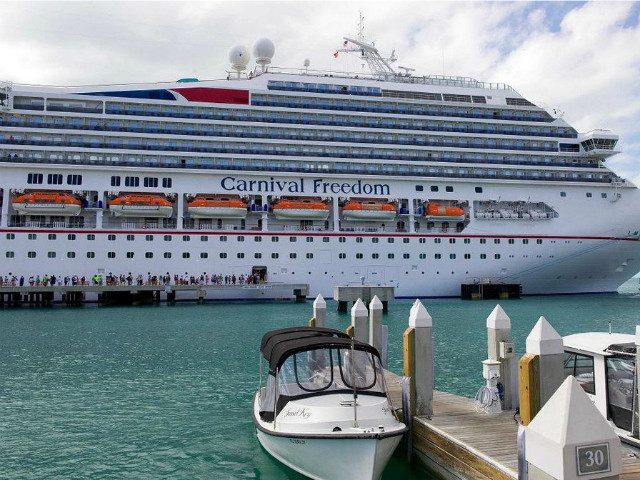The government of Cuba, after weeks of pressure from pro-freedom activists and a lawsuit against corporate giant Carnival Cruise, will make an exception to a law banning U.S. citizens born in Cuba from landing on the island by sea. Passengers aboard Carnival’s Fathom cruise line will be the beneficiaries of that policy change.
Cuban state propaganda outlet Granma announced the changes to its travel laws on Friday. Previously, U.S. citizens born in Cuba could travel into the island by plane, but not by boat, a law the Cuban government claims was to protect against invasion. Granma does not cite Cuban Americans in particular, instead declaring that all “Cuban citizens regardless of migrant condition” will be allowed to enter Cuba on “mercantile ships” and “as cruise passengers.” Limits would remain on Cuban Americans entering the island on yachts, though these would be removed “gradually,” according to the government.
The Granma piece ends with a snide anti-American aside: “Contrast these measures with the persistence of the prohibition of American citizens to travel freely in Cuba.”
Americans are allowed by U.S. law to enter Cuba, as long as they meet one or a number of certain visa requirements. Explicit tourist travel is prohibited. It is when Americans land in Cuba that the Cuban government prohibits them from traveling freely, limiting them to tourist areas controlled by the state. The Cuban government also severely restricts the amount of luggage American passengers can bring, particularly carrying goods like toilet paper and soap, which are difficult to acquire within the island.
The Cuban government’s decision to allow Carnival to board Cuban American passengers is a symbolic defeat for the communist regime as it struggles to do business with the outside world to survive while continuing to shelter its population from the benefits of capitalism. Carnival Cruise had initially agreed to abide by Cuban law and not sell tickets to Cuban Americans for its Fathom line, which was granted a “cultural exchange” license to bring Americans to three ports in Cuba: Havana, Cienfuegos, and eastern Santiago. Outraged Cuban Americans looking for an alternative way to return to their native island were denied the sale of tickets once officials saw their place of birth on their passports, despite being American citizens.
In Doral, Florida, a coalition of anti-Castro Cuban Americans protested before Carnival’s corporate headquarters, holding signs reading, “No to apartheid” and demanding that either Carnival postpone the trips until they could board all passengers or cancel them entirely. Two Cuban Americans sued the cruise line, as refusing to sell boarding passes to American citizens based on their national origin is a clear violation of the 1964 Civil Rights Act. One of the plaintiffs, Francisco Marty, is not able to board planes for health reasons, and argues that the cruise is the only way for him to return to his home country for one last time. As a result of the public pressure, Carnival backtracked and announced it would indeed sell tickets to Cuban Americans and would postpone the trip if the Cuban government did not allow its ship to dock with Cuban-born American citizens on it.
The Fathom line will leave for Havana on May 1, the Marxist holiday celebrated by the Cuban government as “International Workers’ Day.” It promises to show passengers “the real Cuba,” though most travel on the island will be heavily regulated by the Cuban government, as is all tourist travel.

COMMENTS
Please let us know if you're having issues with commenting.